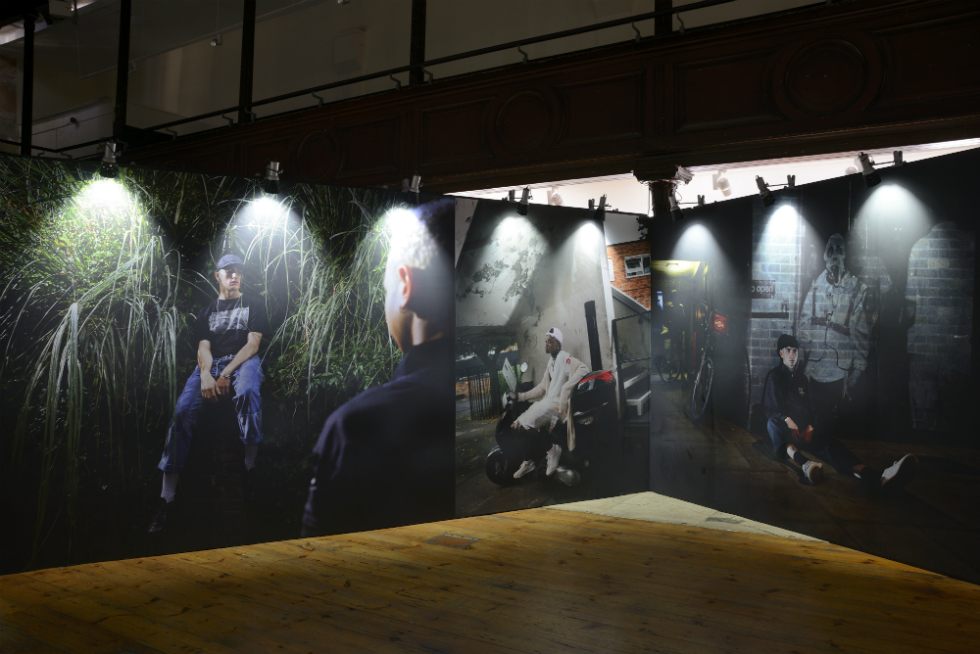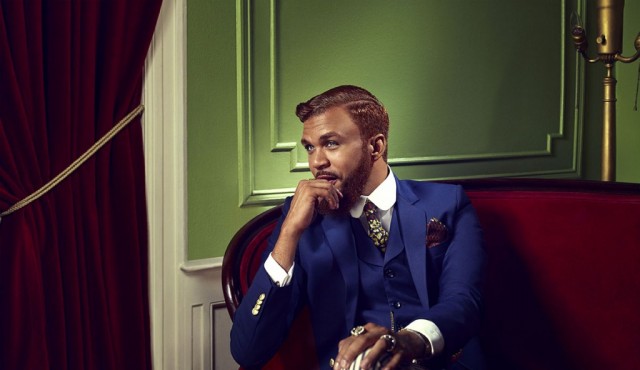“Encouraging intelligent discussions about societal changes, privacy and trust”: Brighton Photo Biennial — Reviewed

This year’s Brighton Photo Biennial offers an invigorating insight into subcultures, fashion, youth, race and gender, finds Laura Robertson…
There are three strong shows making up this year’s Brighton Photo Biennial. Namely, a first-time collaboration from Olivia Arthur and Bharat Sikka on LGBTQ+ cultures in Mumbai and Brighton; teenage portraiture from fashion photographer and self-confessed soul music obsessive Ewen Spencer; and a European première of Shantelle P. Lewis’s ongoing curatorial (or should that be sartorial?) Dandy Lion Project, which questions what masculinity means now. Everything else in the generally interesting programme — which is hosted at venues across Brighton — pales in significance.
To explain why these three projects are so enjoyable is perhaps to explain why photography — in the correct hands — is such an enduring and evocative medium. These three, Brighton Photo Biennial exhibitions couldn’t be more different in tone, yet they all give a remarkable insight into the subcultures recorded; encouraging intelligent discussions about societal changes, visual signifiers, privacy and trust, and how the medium is often used by the media to typecast and, in some cases, demonise. However, the contemporary photography selected is also just really good — insightful and invigorating.
The dapper men and women photographed for The Dandy Lion Project (154-155 Edward Street), in curator Shantelle P. Lewis’s own words, “confront[s] the myth of the young Black man as ‘thug’ via the juxtaposition of an alternative style of dress”. Here, fashion is wielded “as a tool of rebellion”. Pictured are strong men and women, power-posing in expensive and bespoke three-piece suits, trilby hats, sunglasses, cravats, and couture knitwear. It’s a joyous celebration of style, by over 30 photographers; often of cultural leaders who appreciate and continue a tradition of dressing to impress. Such as Marc Baptiste’s Classic Man: featuring pop star Jidenna (below) whose song of the same name (“I’m a classic man / You can be mean when you look this clean”) perfectly sums up an attitude of pleasure and confidence. The Dandy Lion Project powerfully influences the viewer to question stereotypical media representation; not just of young Black men (who are more often portrayed as working class criminals or victims), but for the first time in this touring exhibition, of LGBTQ women.

Likewise, Olivia Arthur and Bharat Sikka are making an alternative document of who make up LGBTQ+ communities in Reimagine (University of Brighton Galleries) — not just in liberal Brighton, but in conservative Mumbai. Having never met each other before this project (the collaboration was arranged by festival producers Photoworks), the pair spent time in each city, with a large-format camera, arranging to take the portraits of people that “represent contemporary diversity”. A tough challenge, and there were concerns: such as the proliferation of LGBTQ+ imagery already existing about Brighton’s gay scene; plus what effect the recriminalisation of the gay sexual act in India (Section 377) would (understandably) have on whether or not the residents of Mumbai would be as willing to take part. Would people be trusting enough? Gladly yes, and it is apparent that Arthur and Sikka were able to make a private, safe place for sitters. Coming from a wide variety of ages (teenagers to OAPs) and cultural backgrounds, all were keen to share a quiet vulnerability, and this is reflected in a striking, sensitive exhibition.
Using an interesting thematic triptych (or “rotating circle”, as Arthur describes it) of intimacy, fantasy and shame, Reimagine captures a quiet sense of self in the sitters. This may be because there was a decision with most to appear party-clothed (without the distraction of full nudity, but exposing nonetheless), or because of the undercurrent of sexual and political narratives — which encompasses long-term relationships, to mastectomies, to mental health issues.
Fashion and music photographer Ewen Spencer’s new commission Kick Over The Statues (Fabrica), in contrast, concentrates on capturing the freedom of youth, and the experiments with clothes and music that teenagers make within the safety of a peer group. Fashion is again wielded as a tool of rebellion, but tentatively; pushing teenage-shaped boundaries. A pink dreadlocked girl stands sullenly in front of a concrete building in London, spectacularly coordinated with pink gilet and pink backpack; while opposite, sportswear-clad, curly-haired lads in Liverpool, like Greek gods, strike nonchalant poses. Cleverly installed on lit billboards in a former church, the atmosphere created is equivalent to walking through streets at night. In some scenes, Spencer has protected shots from 1990s shoots onto these new subjects; bridging the gap of time and of generational tastes in music and clothing. What’s made apparent in this new work is the swift passing of youth — that key, formative time when you know best, yet are still looking for a place in the world.
Laura Robertson, Editor
See Brighton Photo Biennial at venues across Brighton 1-30 October 2016 — apart from Kick Over The Statues, which remains open until 27 Nov 2016 – FREE
Images, from top: installation view, Kick over the statues (Ewen Spencer), Fabrica, 40 Duke Street, Brighton Photo Biennial 2016, photo credit Nigel Green for Photoworks/Fabrica co-commission; Marc Baptiste’s Classic Man, featuring pop star Jidenna, as part of The Dandy Lion Project. Feature image: installation view, The Dandy Lion Project, University of Brighton Galleries, Edward Street, Brighton Photo Biennial 2016, photo credit Nigel Green





